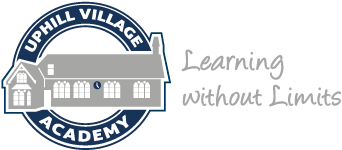SEND
Key Contacts
Sasha Allsopp (SENCO) sasha.allsopp@clf.uk
Qualifications: Post Grad Certificate – Special Educational Needs Coordination
Pastoral Lead: Lucy De Scossa
EYFS Specialist TA: Helen Hetherington
SEND Academy Councillor: Caroline Jamieson
Frequently Asked Questions
What should I do if I think my child may have special educational needs? What can the school do?
If you have any concerns about the progress your child is making at school then your first point of call should be the class teacher. You can make an appointment to meet with them and discuss your concerns. The class teacher will then refer any concerns to Sasha Allsopp who will contact you to speak about possible actions. Concerns you have may be around reading and writing, number skills, behaviour problems, speech and language, sensory problems or emotional and social development. Our Learning Mentors will also be involved if the difficulties are social, emotional or behavioural.
How does the school decide who might need extra support?
Each class teacher is responsible for the progress of all children in their class. They use quality first teaching, observations and regular assessment to identify any cause for concern. The school will also check each child’s progress throughout their school year/life and refer any children who appear to be falling behind or struggling in any area. These children will be referred to Sasha Allsopp who will decide if internal interventions will help or whether we need to refer to outside agencies. Outside agencies may include Speech & Language, Educational Psychologist, Community Paediatrician, Occupational Therapist, School Nurse, Behaviour Improvement Programme, advisory teacher etc. Parents will be kept informed throughout this process.
How does the school make provision for pupils with additional needs with or without an EHCP?
We provide support for children in many different ways. Some children’s needs will be met by differentiated work or small group work with adult support. At times some children may need 1:1 support from a teaching partner to help them access their learning. Where necessary children may have a personalised curriculum which suits their learning needs. The building is accessible and classroom access is supported by ramped access points. We have a disabled toilet and wet room available for children who may need these facilities.
What support is available for improving the emotional and social development of children with additional needs?
In addition to high quality provision from the class teacher all children have access to our Learning Mentors. Our Learning Mentors and other teaching partners work with individual children and small groups using programmes to help explore emotions and feelings. We also run Social Skills groups and Circle of Friends groups so that children can develop skills they need to help them cope throughout their life.
How will parents of children of additional needs be consulted about and involved in the education of their children?
We try to involve parents in all stages of the support being offered. Although there are two parent evenings a year, discussion is not limited to those times, and meetings with parent, child and teachers to discuss and set targets can be held when appropriate. Parental permission is required before outside agencies become involved. If your child has more complex needs, parents are invited to meetings between professionals. Parents of children with Statements of Special Educational Needs/EHC plans are an important part of the planning process. You can request a meeting with your child’s teacher any time you need one.
How will the children with additional needs be consulted about and involved in their education?
Children will be consulted throughout the year by their class teacher and teaching partner. Children who have an annual review will be invited to help organise and take part in their meeting.
How will my child be included in activities outside the classroom, including school trips?
All children, regardless of their needs, are included in all parts of school life, including trips away from school and residential trips. School trips are organised with everyone in mind and extra staff can be provided to assist children with SEND where it is deemed to be necessary and practical. Parents may also be invited to come along where appropriate.
Which specialist services and expertise are available at or accessed by the school?
We have a good deal of specialist knowledge and experience within school. We also have good links when extra support is necessary and, when necessary, can engage the support and advice of Educational Psychologists and Advisory Teachers. We also liaise with other agencies such as, Community Paediatricians, Speech and Language Services, Occupational Therapists, the School Nursing team and CAMHS.
How will the school prepare and support my child when joining Uphill Academy or transferring to a new school?
Children who need extra support at times of transition are identified by the school and/or the parents. Enhanced transition procedures are then put in place. These can be extra visits to the school/class, transition books with photos and information, meetings with teachers or tutors and meetings between staff at both schools, and the parents.
What are the arrangements made by the governing body relating to the treatment of complaints from parents of children with additional needs, concerning the provision made at the school?
If a parent has a concern or a complaint to make they should, in the first instance, direct this to Mrs Hodder verbally or in writing. If the parent is not happy with the outcome of this they should then follow the guidance outlined in our complaints policy available on the website.



